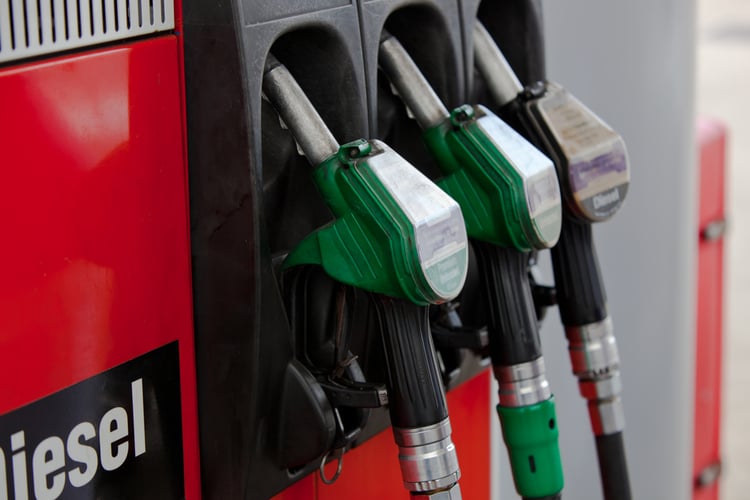
Diesel cars currently account for 44% of the national fleet in Ireland. Irish fleet petrol cars have experienced a decrease in the past few years, seemingly due to the implementation of the CO2 emissions-based tax, which decreased from 73.88%, in 2008, to the current figure of 66%. According to sales numbers, about 57% of cars sold in 2009 were diesel-powered. This number has consistently increased, reaching 74.2% in 2012.
In the United Kingdom, car fleets have seen a stea
dy transition from petrol-driven to diesel-driven vehicles over the last 20 years. Licensed car fleets that consist of diesel and alternative fuel vehicles, have increased to exactly one third of the car fleets in 2012. Almost 9.4 million were diesel cars, accounting for nearly 32.7% of all licensed cars, up from 7.4% in 1994. (source: Vehicle Licensing Statistics: 2012, Government dpt for transport).
You may be trying to decide between a diesel or petrol car. When it comes to fuel economy, saving fuel is usually the most important element. Diesel fuel is usually cheaper than petrol, yet diesel cars are generally more expensive. Figuring out which car would be cheaper to run is not easy and a number of factors will have to be considered before making your decision.
There are pros and cons to both engine systems. The pair have undergone a number of technological advances in recent years that have increased their performance and fuel efficiency. Below is a guide that can aid in your car buying experience.
Diesel vs Petrol Cars
When deciding on a vehicle, consumers usually choose to purchase diesel cars because diesel is less expensive than petrol, and fewer taxes are applied to the fuel. Yet diesel cars tend to be more expensive because the technology varies greatly, engine components and servicing are exorbitant, and diesel cars are usually heavier than their counterparts.
Car insurance costs are another important detail you need to consider as insurance is higher for diesel cars because they partly depend on the high price of its engine components and tyres.
What about servicing?
Diesel cars have more onerous maintenance costs and components. Tyres tend to deteriorate faster as diesel vehicles are characterized by greater weight, and the same is valid for spark plugs and filters. Diesels can be more expensive to maintain when driven incorrectly or mismatch your driving style. You should fully examine and explore the cost of maintenance, and your driving habits, before purchasing a proper vehicle.
If you use your vehicle as a city-car and only for short runs, a diesel car might not be suitable for your needs. If you are undertaking low annual mileage, and especially if this mileage is in the cities, in most cases a petrol will be far superior for your needs and wallet.
Will I really save money on fuel if I buy a diesel vehicle?
As previously mentioned, diesel fuel is less expensive than petrol, yet diesel cars are initially a more expensive purchase. As far as maintenance is concerned, diesel engines are more robust and require additional raw materials. Despite diesel fuel costs, there are considerable technical and cost hurdles for the next generation of diesel engines, as future emissions regulations of pollutants, not just carbon dioxide, require additional exhaust treatment systems that may not be required in petrol cars.
Consider that you pay significantly less for the petrol car in the first place, and depending on your car use and fuel economy, saving fuel costs on diesel might not offset other expenses.
What you choose will be determined by your preference, instinct, and habits. While diesel vehicles have their uses, such as high mileage or long commutes, they aren't always the best choice. Before deciding, think about your budget and habits, and which type of vehicle, diesel or petrol, will truly serve your driving needs.



